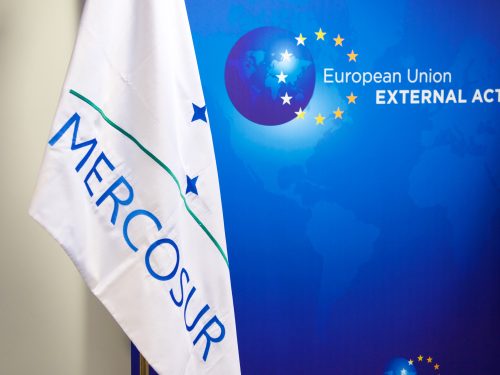News
Share on
Today the Director General by ConfindustriaFrancesca Mariottiintervened in hearing at the Joint Budget and Finance Committee of the Chamber of Deputies, as part of the examination of the draft law converting Decree No. 50 of 2022, containing urgent measures on national energy policies, business productivity and investment attraction.
Energy price shock continues to undermine growth prospects
The Aid Decree comes at a time of great uncertainty for the purchasing power of households and the productive capacity of companies. The consequences of the crisis go far beyond the direct scope of sanctions and affect all aspects of the entrepreneurial ecosystem. Global value chains have been overwhelmed and it will take time before the market can rebuild them. Huge increases in raw materials and energy prices are impacting on business costs, in Italy even more than in other European countries, squeezing margins, in some cases to zero. According to estimates by our Research Centre, due to the jump in prices, energy costs in Italian manufacturing have risen by EUR 27 billion compared to the pre-crisis period (+ EUR 68 billion in the whole economy).
Need for far-sighted choices, including at European level, and revitalisation of the reform drive
Confindustria highlights the need for forward-looking answersto alleviate the impact of the crisis and give our companies a future. It is the task of the ruling classes, and first and foremost of politics, to chart a course for change: the set of rules that have governed the globalisationcreating a more prosperous and advanced planet over time, are undergoing a stress from which they will emerge profoundly changed. It will probably also survive this crisis, but it will change its skin, as it has in the past, so it is up to politics to guide the new scenarios.
At European level, a positive signal has come with the recent proposal of the EU Commission concerning the Repower EUwhose articulate contents we reserve the right to examine in more detail in order to express an opinion.
At the national level, the government and parliament have undoubtedly deployed a significant amount of resources to deal with the exceptional nature of the crisis. However, the approximately EUR 30 billion allocated from January to today have been almost entirely destined to mitigate the effects of the emergency for the first six months of 2022, on the assumption that the economic situation will normalise after the summer. A condition, the latter, which we already know will not come true.
Such uncertainty, considering the physiological needs of business planning, risks thwarting the very effectiveness of the resources allocated so far. For this reason, we believe it is essential to build an overall vision that, in close connection with Europe, pursues at least 4 fundamental objectivesguaranteeing energy supplies and developing renewable energy sources; compensation measures for the energy price shock; implementation of the reforms envisaged in the NRP; reduction of labour costs.
We also register a slowdown in reformist tension linked to the NRP, favoured by partisan interests and far removed from the general interest of the country.
It is not only a matter of approving the regulations within the timeframe envisaged by the Plan, but also of endowing them with a quality commensurate with the issues addressed and concern - already in parliament - with their concrete implementation. This requires a high sense of responsibility on the part of all the political and social forces, which should take ownership of the reform path, even in the dialectical confrontation between different opinions and solutions.
DL Aiuti: interventions still cyclical in nature, but on renewables good simplifications for diversification of sources. Missed opportunity for revision of extra-profits taxation
In line with previous interventions, the DL Aiuti is still characterised by short-term measuresalthough the first strategic elements on the energy front can be glimpsed.
In this sense, positive interventions in the field of renewablesparticularly for the simplification of authorisation procedures and for the identification of suitable areas. These measures create the conditions to facilitate, this time structurally, the process of diversification of sources and related investments. In this framework, we consider it essential to speed up the procedures for the remediation of contaminated sitesso as to allow investments in the territories that are currently blocked by regulations and procedures that are out of step with the times, and which risk nullifying the instruments supporting investments in the territories.
Also worth mentioning is the enhancement of tax credits for energy-intensive and gas-guzzling companies, although the cyclical nature of these interventions is confirmed and there is no lack of critical application issues. Limited to an increase in the rate, on the other hand, is the amendment to the extraordinary contribution on extra-profits in the energy sector, the regulation of which still needs incisive action to correctly identify the extra-profits and only intercept companies that have achieved them.
On the new measure in support of road hauliers included in the DL, we point out that, although we agree with its purpose, it is based on discrimination, since the facilitation for the purchase of fuel is only granted to road haulage, while passenger transport is excluded.
Structural interventions continue to be absent, particularly on the tax wedge
On the recovery support front, the enhancement of intangible goods and 4.0 training tax credits for 2022, as well as the inclusion of measures to support internationalisation and the refinancing of the IPCEI fund which is certainly a positive result, but not enough to finance all the projects already in the pipeline.
Positive l'introduction by Higher education territorial pacts for companies aimed at promoting the interdisciplinarity of study courses and the training of innovative and highly specialised professional profiles that can meet the needs expressed by national production chains.
On labour chapter, however, the interventions are not in line with the need for a structural cut in the contribution wedge. As is well known, Confindustria has long supported and in recent weeks presented a proposal for a cutting the contribution wedgeconcentrated on low-income groups, two-thirds benefiting workers and one-third benefiting employers. In fact, price increases in energy and other raw materials are not only reducing company margins, in some cases making it no longer profitable to produce, but also eroding households' purchasing power. Therefore, the cut in the contribution wedge would make it possible to act in a cyclical manner to mitigate the effects of price rises, but it would also have an important structural impact on the competitiveness of businesses, because it would bring the level of the tax and contribution wedge, now much higher in Italy, closer to the European average. Instead, the DL limits itself to introducing a 'one-off' support of EUR 200 for employees, pensioners and other categories within certain income thresholds (EUR 35,000) and subject to compliance with specific conditions.
On liquidity support, the DL relies on public guarantees, but the choices made do not seem entirely satisfactory, as they fall well short of the needs dictated by the emergency and the possibilities allowed by the European aid framework.
Finally, some measures concern the issue of prices in the execution of public works contracts. In this regard, we express strong concern about the absence of a price compensation mechanism for public contracts also for services and supplies, repeatedly urged by Confindustria. The consequence is the risk of an abrupt halt in important segments of the public procurement market, which could have a negative impact on the country, not least because of the slowdown in the projects envisaged in the NRP.




